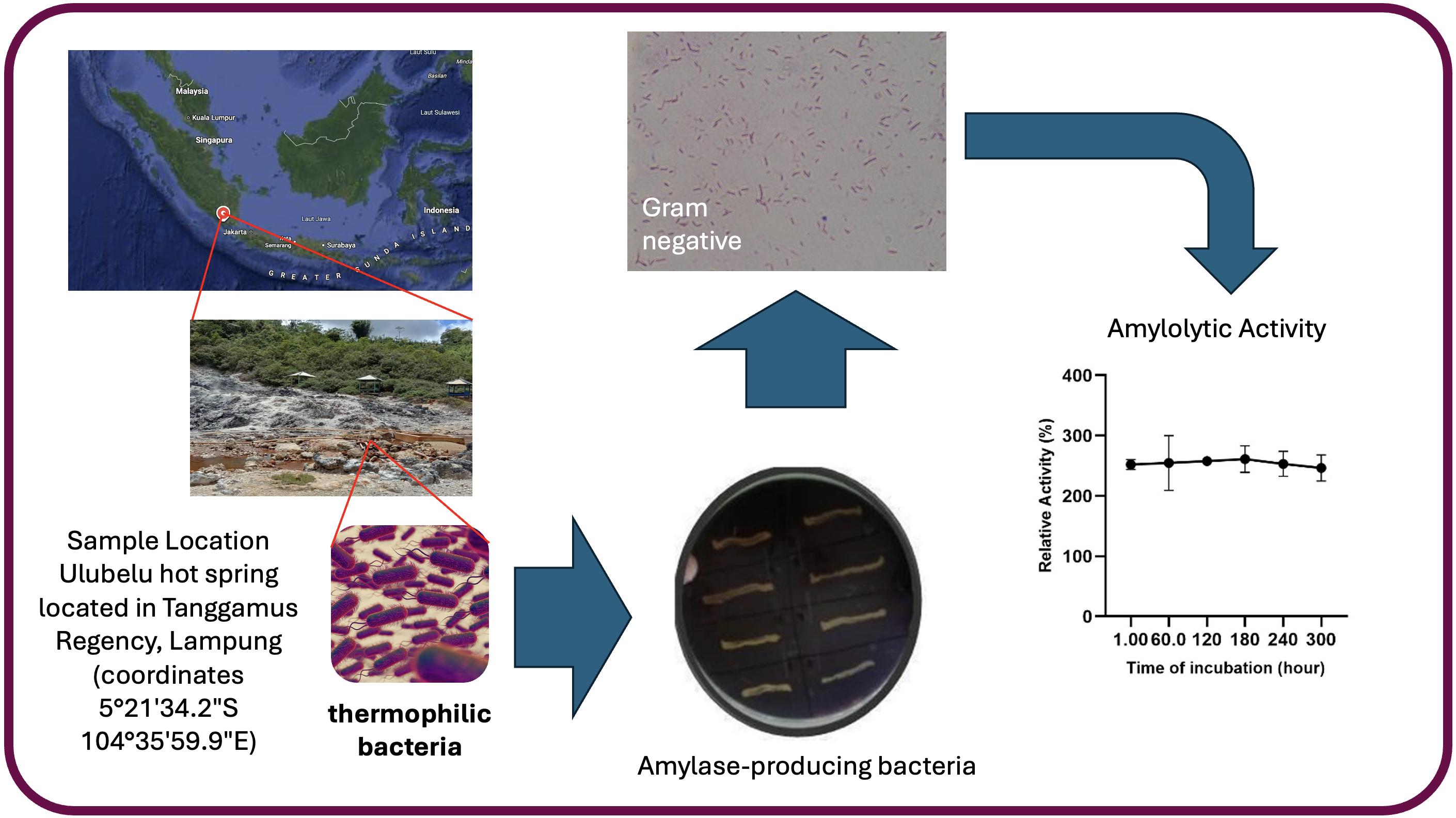Screening and Isolation of Thermophilic Amylase-Producing Bacteria from Ulubelu Hot Springs in Tanggamus Lampung
Abstract
Thermophilic bacteria generally thrive in hot springs and produce thermostable enzymes. These enzymes retain catalytic activity at high temperatures and play an important role in various industrial applications. This study aims to conduct screening, isolation, and characterization of thermophilic amylase-producing bacteria from the Ulubelu hot spring located in Tanggamus Regency, Lampung. Hot spring water samples from a location with a temperature of 60°C and pH 5 yielded eight bacterial isolates with amylolytic activity, as indicated by clear zones around the colonies. Among the isolates obtained, Ulb A3.7 exhibited the largest clear zone diameter and was therefore selected for further characterization. Morphological and physiological analyses revealed that Ulb A3.7 is a Gram-negative rod-shaped bacterium. The Ulb A3.7 isolate tested positive for oxidative-fermentative metabolism, oxidase activity, and glucose utilization. The crude α-amylase from Ulb A3.7 exhibited optimal activity at 80°C and demonstrated a broad activity range. The enzyme was able to retain its amylolytic activity for up to 300 minutes of incubation, indicating its potential for application in high-temperature industrial processes.






















